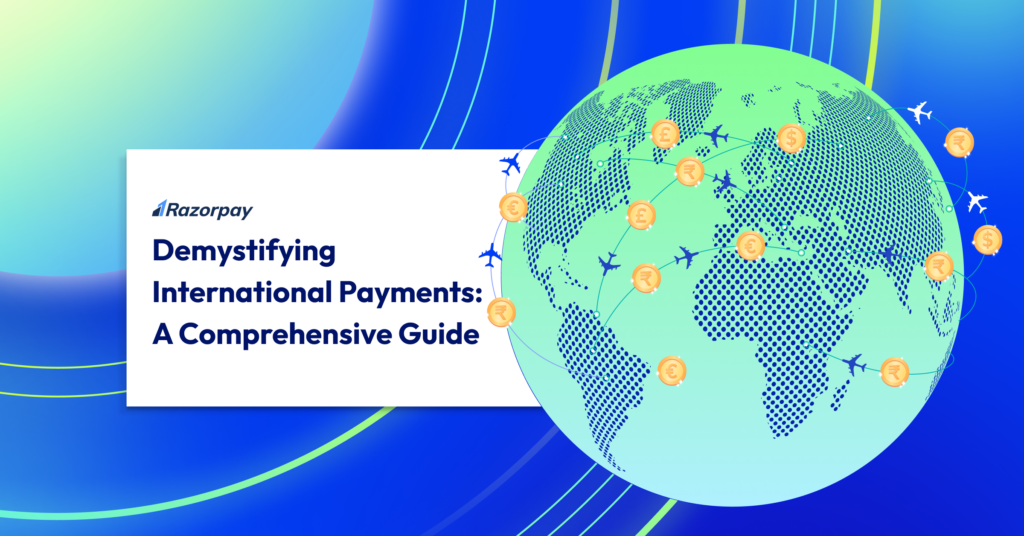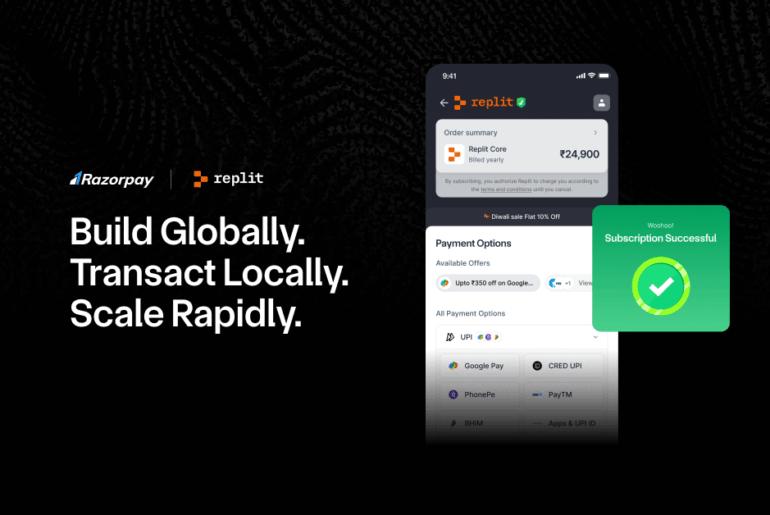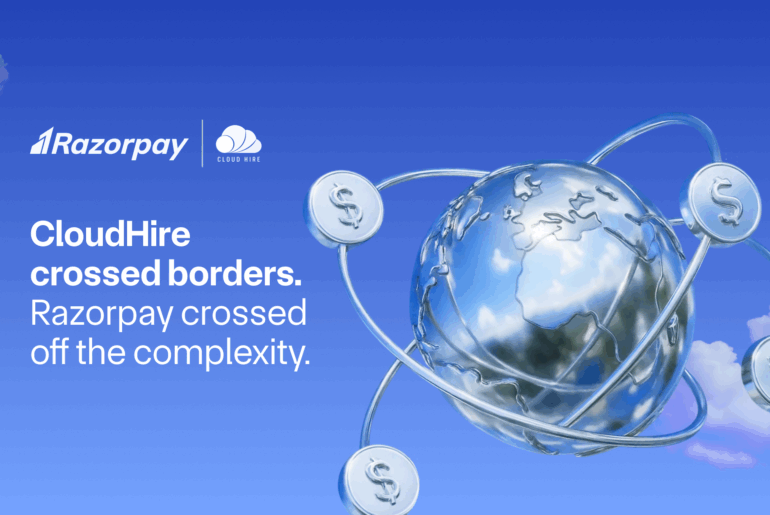Imagine a world where you can work for a company in Mumbai, India, while living in London, England. Or take online courses from a top university in the United States while living in rural China. Or buy a product from a small business in Tokyo, Japan, with a few clicks of a button. Or even take a virtual tour of ancient ruins in Egypt without ever leaving your home.
This is the world of the digital age we live in, where boundaries between people, places, and businesses are becoming increasingly blurred, giving way to new forms of communication, collaboration and commerce.
International payments are an important offshoot of this transformation, enabling businesses, big or small, to branch out and extend their reach across the world. Whether you’re an entrepreneur running a small e-commerce store or a multinational corporation engaging in large-scale global transactions, understanding the intricacies of international payments is essential. In this comprehensive guide, we will delve deep into the world of international payments with key considerations and factors to keep in mind before you set sail across the global waters of trade.
What are International Payments?
International payments, also known as cross-border payments, are transactions that involve sending or receiving money from one country to another. These payments can be made for a variety of reasons, such as to pay for goods or services, to invest in another country, or to send money to family and friends.
Export vs Import Payments
Export payments are the financial transactions that occur when a country or entity sells goods, services, or assets to foreign customers or buyers. For example, an Indian fashion house that sells luxury Indian clothing and apparel to the UK would receive an export payment.
Import payments refer to the financial transactions that occur when a country or entity purchases goods, services, or assets from foreign sources. For example, a company in the United States, without any Indian entity, that sells software to Indian customers would receive an import payment.
What Impacts International Payments?
Several factors can influence the smooth execution of international payments, and it’s essential to consider these variables to ensure successful transactions.
1. Success Rate

The success rate of international payments depends on a number of factors, including the accuracy of the sender’s and receiver’s information, the payment method used, and the recipient’s country. For example, bank transfers and wire transfers typically have a higher success rate than credit card payments. This is because bank transfers and wire transfers are processed directly between banks, while credit card payments involve a third party, the credit card company. The countries involved in the transaction can also affect the success rate of international transactions. Payments to and from countries with less developed financial systems may have a lower success rate than payments to and from countries with more developed financial systems. Finally, the amount of money being transferred can also affect the success rate of international payments. Large payments may be subject to additional scrutiny by banks and other financial institutions, which can increase the risk of failure.
Razorpay offers best-in-class success rates when it comes to international card payments. With a 70% success rate on international cards and over 2 lakh saved cards utilized for international payments, you can boost conversions, increase revenue, and delight customers with a superior payment experience.
Related Read: How to Make Credit Card Payments Through NEFT?
2. Currency Coverage

Have you ever shopped online from an international store, only to find prices listed in a foreign currency? Pulling out a calculator to convert these prices every time can be quite tiresome. With currency coverage, a range of currencies are offered and supported by a payment service provider or financial institution. Think of it as a “currency menu”, and the more diverse the options offered, the more choices businesses have to pick from, helping them save money on conversions and shield them from ever-fluctuating currency values.
Razorpay makes it easy for you to sell to customers all over the world, without having to worry about currency conversion. Customers will see prices in their local currency, and you’ll receive payments in the currency of your choice. Razorpay supports payments from over 160+ countries, including the USA, UK, Australia, Canada, and UAE.
3. Local Payment Methods

International payments can be made using local payment methods, such as mobile wallets and bank transfers. Choosing a provider that supports the recipient’s local payment method can enhance convenience and trust in international transactions.
Bank Transfers: Funds can be transferred directly between bank accounts in different countries. For example, the United States uses ACH (Automated Clearing House), and the Eurozone uses SEPA (Single Euro Payments Area).
Wire Transfers: This involves securely sending money from one bank to another through networks like SWIFT (Society for Worldwide Interbank Financial Telecommunication).
Regional Online Payment Gateways: Some regions have their own online payment gateways, such as iDEAL in the Netherlands and GiroPay in Germany, which are commonly used for e-commerce transactions within those countries.
If you’re looking to boost conversion and transaction success rates by providing global customers with familiar payment options, Razorpay can help! As a leading international payment gateway, We offer comprehensive payment coverage, including Visa, Mastercard, American Express, Diners Club International, PayPal, Trustly, Poli, and ACH network, among others. Indian exporters can leverage the Money Saver Export account which allows merchants to receive international payments with ease through ACH, SWIFT, SEPA, BACS, and Fedwire.
4. Compliance

In India, businesses that make or receive international payments are required to file Foreign Inward Remittance Certificates (FIRCs) with the Reserve Bank of India (RBI). It is required for various purposes, including claiming tax benefits, applying for government schemes, and reconciling export documents. FIRCs are crucial as they enable the Indian government to monitor foreign currency inflows, ensuring their legitimate use and minimizing the risk of non-compliance and related penalties.
Razorpay offers a one-click solution that makes FIRC compliance a breeze. You can enjoy the convenience of receiving your digital FIRS (Foreign Inward Remittance Settlement) on your dashboard every month, without the need for manual intervention, consolidation, or ticket management. FIRS is readily accepted by most banks as a legitimate proof of foreign transactions through a licensed payment gateway. FIRC Compliance has never been simpler – just a single monthly click, and you’re ready to go! Additionally, Razorpay is backed by a PA License from the Reserve Bank of India, ensuring full regulatory compliance for all your international payments.
5. Security

When choosing an international payment gateway, it is important to consider the security measures they have in place for secure transactions.
PCI DSS Compliance: Payment Card Industry Data Security Standard (PCI DSS) compliance ensures the secure handling of credit card data, protecting both businesses and customers from data breaches.
Chargeback Protection: Implementing measures to prevent chargebacks, such as thorough transaction documentation and dispute resolution processes, can safeguard against financial losses.
3DS vs. Non-3DS Payments: 3D Secure (3DS) enabled transactions mandate the Additional Factor Authentication (AFA) step in a transaction.This could be an OTP, a password, a biometric input or a Personal identification number (PIN). The choice between 3DS and non-3DS payments impacts the security of online transactions as 3DS adds an extra layer of security to online, reducing the risk of fraudulent payments.
We take security to the next level with 3DS 2.0, an upgraded version of 3DS. It combines customizable risk checks with smart AI-driven risk assessment to reduce the risk of chargeback and fraud, while providing a seamless payment experience. This means that your 3DS 2.0 payments may no longer need an Additional Factor of Authentication, leading to a truly frictionless payment experience.
Conclusion
Making international payments can be a complex and confusing process, but it does not have to be. With Razorpay’s extensive international payments product suite, you can make payments more quickly, securely and affordably, all while making a mark on a global scale. With the industry’s best success rates, hassle-free and automated compliance, smarter fraud protection and lower transaction costs, Razorpay can be your guide to smooth sailing in the world of international payments.
Ready to take your business to the world? Get in touch with us!




